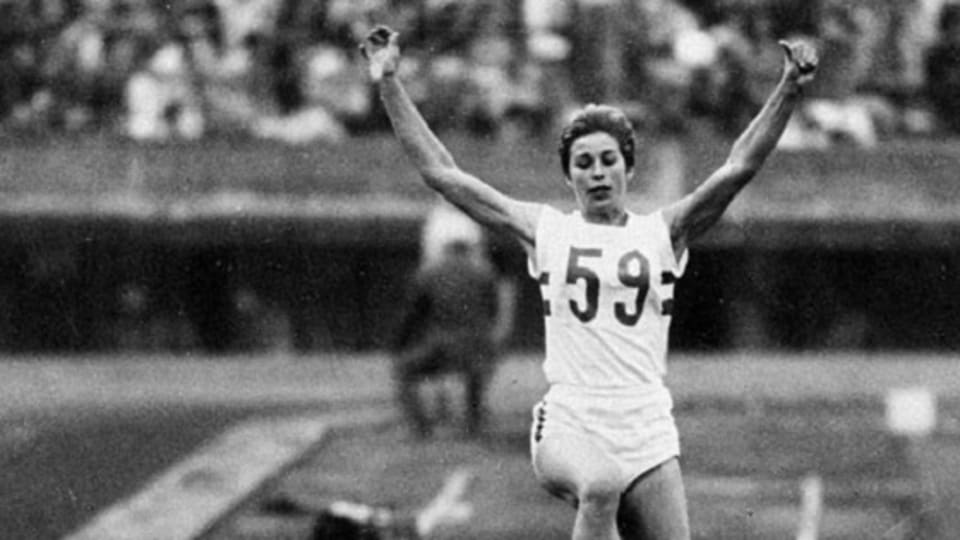Rand becomes Great Britain's first female athletics champion
Athletes often share a room during the Olympic Games, but rarely can a room have contained quite so much sporting brilliance as the one shared by Anna Packer and Mary Rand, two unassuming British women destined to prove themselves among the most versatile athletes in the world.

Packer had been a champion in the long jump, hurdles and sprinting earlier in her life. In Tokyo, she had won silver in the 400m and gold in the 800m. And yet, remarkably, her room-mate’s haul was ever greater.
Mary Rand was another athlete of extreme versatility. She had competed in the 80m hurdles in Rome, and she was an international class sprinter. She held the unofficial triple jump world record (the event was not officially recognised until many years after her retirement) and was a fine high jumper.
But long jump was her main focus and she came to these Games inspired by the memory of a huge disappointment at the previous edition. In Rome, four years before, she had led the long jump after the qualifying round but then had a terrible time in the final, with two no-jumps and a meek effort in the third round that was only good enough for ninth place. In Tokyo, though, she was a woman transformed. Once again, she shone in the qualifying round, breaking the Olympic long jump record, but this time her form continued into the final. With her fifth jump out of six, she broke the world record to confirm her victory and become the first British woman to win a gold medal in Olympic athletics.
Rand was not finished there, though. Two days later she was taking part in the inaugural women’s pentathlon, perhaps the most gruelling event for women athletes of the time. Rand stood third after the first day, despite a poor shot put, and, thanks to predictably strong performances in the long jump and high jump, moved up to second. Despite winning three of the five elements, she could not get ahead of the imperious Irina Press, but did win a silver to add to her collection.
Finally Rand completed her set with a bronze medal in the 4x100m relay. “She was the most gifted athlete I ever saw,” said Packer of her room-mate. “There has never been anyone like her since, and I don’t believe there ever will.”
Injury prevented her from making the team for the 1968 Olympic Games and Rand retired that year, still only 28 years old.
